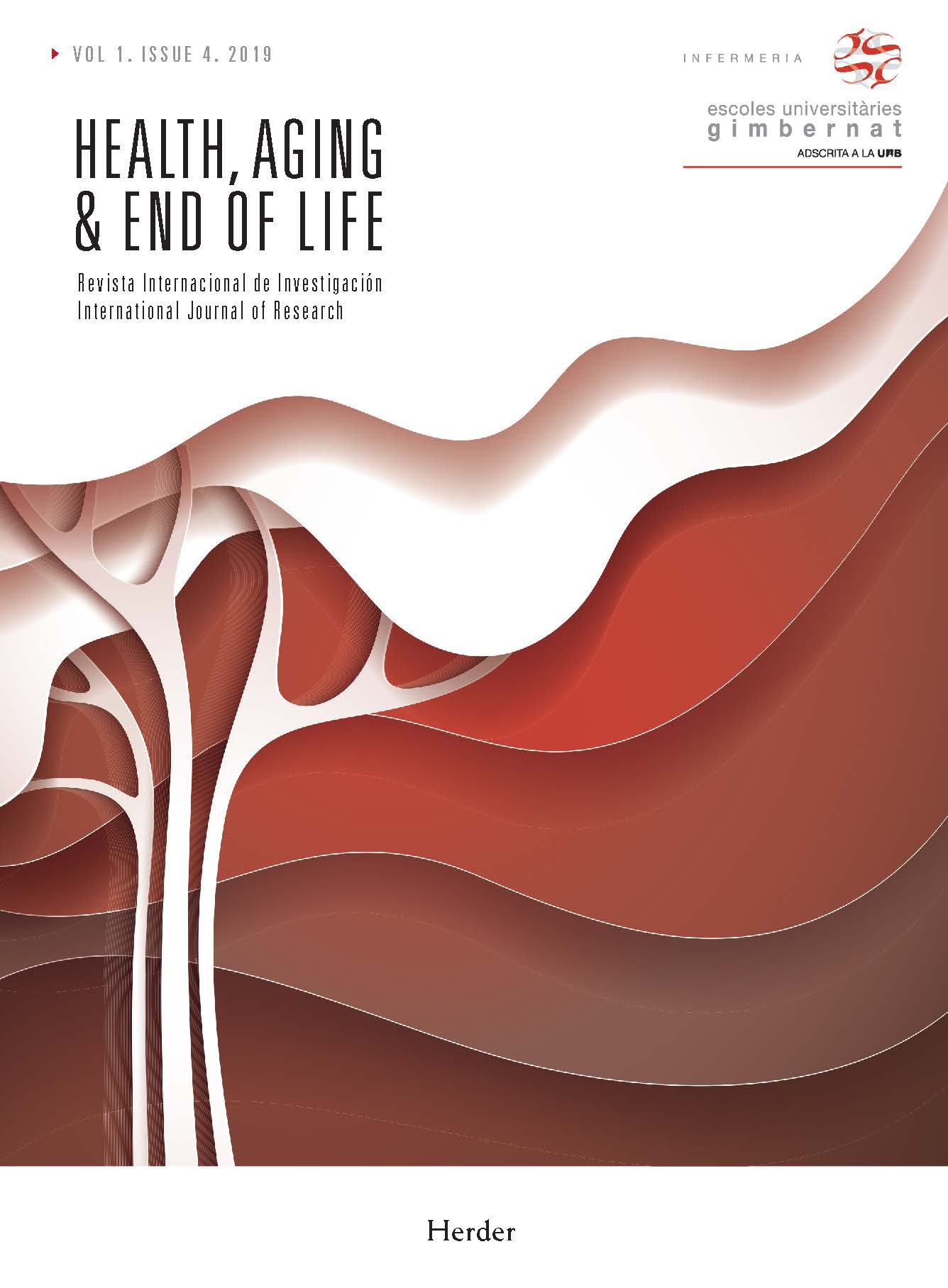Abstract
Objective: This study intends to know the emotional impact and explore the experience experienced by parents when notified of their child’s admission to a PPCU. Also, detect which strategies used by professionals helped them and which ones did not.
Method: Qualitative study of interpretative phenomenological design. 10 pro-genitors of children admitted to the PPCU of Sant Joan de Déu Hospital, Barce-lona, aged: 41-52 years old.
Results: 4 main themes emerged: impact; lack of information; space and time to integrate the news; knowledge of the team / therapeutic alliances, the impact being the most recurrent.
Conclusions: Having information about PPCU, the adequate space and time to assimilate the news, establish a relationship of trust and the possibility of an early intervention were shown as key elements to reduce the emotional impact. This study could become a valid tool to create training programs for professionals involved in the process and improve the quality of care in the future.
References
Alameda, A. y Barbero, J. (2009). El duelo en padres del niño oncológico. Psicooncología, 6 (2-3), 485-498.
Bollas, C.H. (1987). La sombra del objeto: Psicoanálisis de lo sabido no pensado. Madrid: Amorrortu editores España SL.
Castañeda de la Lanza, C., O’Shea, G., Gallardo, D.M., Farreras, D., Calderón, M. y Chávez, E.P. (2015). Cuidados paliativos: la experiencia en pediatría. Gaceta Mexicana de Oncología, 14 (3), 181-184.
Caprice, A., Knapp, D., Vanessa, L., Madden, B.S., Curtis, C.M., Sloyer, P. y Shenkman, E.A. (2010). Family Support in Pediatric Palliative Care: How Are Families Impacted by their Children’s Illnesses?. Journal of Palliative Medicine, 13 (4), 421-426.
Carroll, K.V., Mollen, C.J., Aldridge, S., Hexem, K.R. y Feudtner, C. (2012). Influences on Decision Making Identified by Parents of Children Receiving Pediatric Palliative Care. AJOB primary research, 3 (1), 1-7.
García Salido, A., Santos Herranz, P., Puertas Martín, V., García Teresa, M.A., Martino Alba, R. y Serrano González, A. (2018). Estudio retrospective de pacientes derivados de cuidados intensivos pediátricos a cuidados paliativos: por qué y para qué. Anales de Pediatría, 88 (1), 3-11.
Gordon, C., Barton, E., Meert, K.L., Eggly, S., Pollacks, M., Zimmerman, J., Anand, K.J., Carcillo, J., Newth, CJ., Dean, J.M., Wilson, D.F. y Nicholson, C. Eunice Kennedy Shriver National Institute of Child Health and Human Development Collaborative Pediatric Critical Care Research Network. (2009). Accounting for medical communication: parents’ perceptions of communicative roles and responsibilities in the pediatric intensive care unit. Communication & Medicine, 6 (2), 177-188.
Hauer, J.M. y Wolfe, J. (2014). Supportive and palliative care of children with metabolic and neurological diseases. Current Opinion Support Palliative Care, 8 (3), 296-302.
Hendricks-Ferguson, V.L. (2007). Parental perspectives of initial end-of-life care communication. International Journal of Palliative Nursing, 13 (11), 522-531.
Hendricks-Ferguson, V.L. y Haase, J.E. (2018). Parent Perspectives of Receiving Early Information about Palliative and End-of-Life Care Options from Their Child’s Pediatric Providers. Cancer Nursing, doi: 10.1097/NCC.0000000000000589 [Epub ahead of print].
Hilden, J.M., Emanuel, E.J., Fairclough, D.L., Link, M.P., Foley, K.M., Clarridge, B.C., Schnipper, L.E. y Mayer, R.J. (2001). Attitudes and practices among pediatric oncologist regarding end-of-life care: results of the 1998 American Society of Clinical Oncology survey. Journal of clinical oncology: official journal of the American Society of Clinical Oncology, 19 (1), 205-212.
Hsiao, J.L., Evan, E.E. y Zeltzer L.K. (2007). Parent and child perspectives on physician communication in pediatric palliative care. Palliative and Supportive Care, 5 (4), 355-365.
Kassam, A., Skiadaresis, J., Alexander, S. y Wolfe, J. (2015). Differences in End-of-Life Communication for Children with Advanced Cancer Who Were Referred to a Palliative Care Team. Pediatric Blood Cancer, 62, 1409-1413.
Lotz, D.J., Daxer, M., Jox, R.J., Borasio, G.D. y Führer, M. (2016). “Hope for the best, prepare for the worst”: A qualitative interview study on parents’ needs and fears in pediatric advance care planning. Palliative Medicine, 31(8), 1-8.
Marsac, M.L., Kindler, C., Weiss, D. y Ragsdale, L. (2018). Let’s Talk About It: Supporting Family Communication during End-of-Life Care of Pediatric Patients. Journal of Palliative Medicine, 21 (6), 1-17.
Mullen, J., Reynolds, M.R. y Larson, J.S. (2015). Caring for pediatric patients’families at the child’s end of life. Critical Care Nurse, 35(6), 46-55.
Neimeyer, R.A., Wittkowski, J. y Moser, R.P. (2004). Psychological research on death attitudes: an overview and evaluation. Death Studies, 28, 309-340.
Odeniyi, F., Nathanson, P.G., Schall, T.E. y Walter, J.K. (2017). Communication Challenges of Oncologists and Intensivists Caring for Pediatric Oncology Patients: A Qualitative Study. Journal of Pain and Symptom Management, 54 (6), 909-915.
Organización Mundial de la Salud. Cuidados paliativos: para todas las edades y todas las enfermedades (2015). [consulta el 20 de enero de 2019]. Disponible en: https://www.who.int/features/2015/south-africa-palliative-care/es/
Rincón, C., Martino, R., Catá, E. y Montalvo, G. (2008). Cuidados paliativos pediátricos. El afrontamiento de la muerte en el niño oncológico. Psicooncología, 5(2-3), 425-437.
Ruppe, M.D., Feutdner,C., Hexem, K.R. y Morrison, W.E. (2013). Family Factors Affect Clinician Attitudes in Pediatric End-of-life Decision Making: A Randomized Vignette Study. Journal of Pain and Symptom Management, 45 (5), 832-840.
Sheetz, M.J. y Bowman, M.A. (2013). Parents’ Perceptions of a Pediatric Palliative Program. The American Journal of Hospice & Palliative Medicine, 30(3), 291-296.
Sullivan, J., Monagle, P. y Gillam, P. (2013). What parents want from doctors in end-of-life decision-making for children. Archives of disease in childhood, 99 (3), 216-220.
Tomás Sabado, J. y Gómez Benito, J. (2003). Variables relacionadas con la ansiedad ante la muerte. Revista de Psicología general y aplicada, 56: 257- 279.

